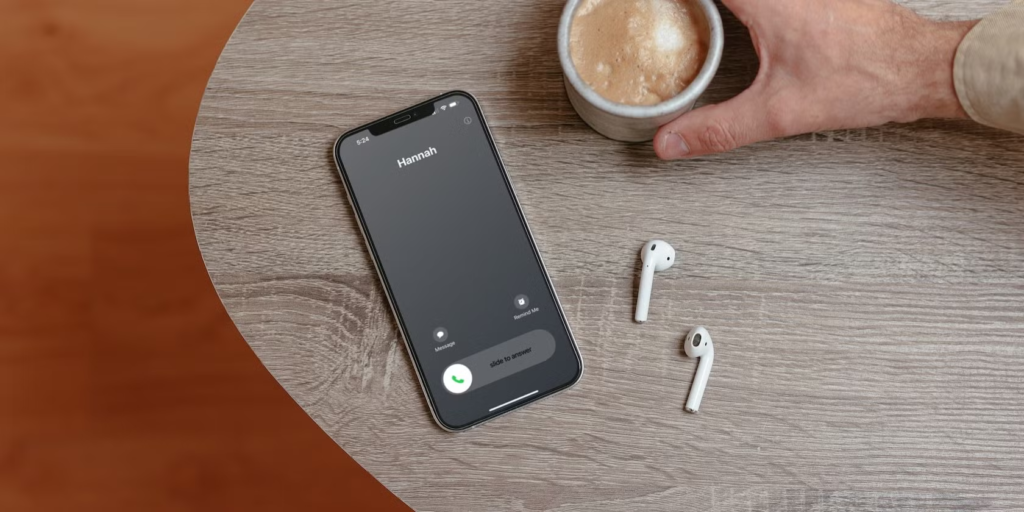
Spam calls have become an unfortunate part of modern life. Whether it’s a robocall, a marketing pitch, or a scammer trying to take advantage of your time and money, these unwanted calls are on the rise. In the UK, various phone numbers have been flagged as spam due to their suspicious activities. In 2025, people are more aware than ever, using tools like TrueCaller, WhoCalledMe, and others to report and block these numbers. If you’ve received calls from the following numbers, you’re not alone. These are some of the top reported spam numbers in the UK this year.
Quick Overview of Top Reported Spam Numbers
Spam calls can come from various sources: automated machines, scam callers, telemarketers, and more. These calls may attempt to trick you into providing personal information or cause disruptions in your day-to-day life. Here’s a quick overview of the top reported numbers causing concern in the UK.
| Phone Number | Reported Spam Type | Frequency of Reports | Potential Scam Type | Source of Calls |
| 2034752474 | Robocall, Scam | High | Fake Banks, IRS Scams | Overseas scam operations |
| 3301740216 | Telemarketing, Robocall | Moderate | Credit Card Offers | Sales/Marketing Organizations |
| 7874425213 | Scam, Fraudulent Calls | High | Fraudulent Debt Relief | Financial Scams |
| 2870024018 | Fraudulent Offers | Moderate | Fake Loan Offers | Fake Loan Agencies |
| 7418360549 | Robocall, Scam | High | Tax Refund Scam | Scam Networks |
| 2870024625 | Telemarketing, Scam | Moderate | Fake Insurance Offers | Fake Insurance Agencies |
| 1913640223 | Fraudulent Call, Scam | Moderate | Fake PPI Claims | Scammers pretending to be PPI |
| 1618200299 | Robocall, Scam | High | Fraudulent Prize Scams | Unsolicited Marketing |
| 1782401163 | Fraudulent Call, Robocall | High | Lottery Scam | Lottery Phishing Scams |
| 2080448719 | Telemarketing, Scam | Moderate | Fake Charity Requests | Fake Charitable Organizations |
Check Recent Spamming Numbers:
01634535585 : : 040855989821 : : 01618200299 : : 07441902976 : : 01162018000
1. 2034752474 – High Reports for Fake Bank Scams
This number has gained significant attention in 2025 as a source of fraudulent calls pretending to be from banks or government bodies. The scam typically involves robocalls that ask recipients to confirm personal information or bank account details. These calls are designed to trick people into handing over sensitive data for malicious purposes.

What Is the Scam About?
Scammers often claim to be from a bank and tell you there has been unusual activity on your account. They will urge you to verify your information immediately. When you provide your bank details, they may either steal funds or use your data for identity theft.
How to Protect Yourself:
- Do not answer calls from unfamiliar numbers.
- Always contact your bank directly using the contact information on your bank statements or website.
- Use services like TrueCaller to identify and block spam numbers.
2. 3301740216 – Moderate Reports for Telemarketing
While many telemarketing calls are harmless, some can be quite persistent and invasive. The number 3301740216 is often associated with automated marketing calls that push various services like credit cards, loans, or insurance products. These calls are typically automated robocalls, where a pre-recorded message prompts you to make a decision or confirm details.
What Is the Scam About?
Although not all calls from this number are scams, some have been flagged as misleading. The goal is usually to get you to sign up for something or buy a product. Some of these calls are deceptive, offering fake deals or packages at inflated prices.
How to Protect Yourself:
- Register your phone number with the Telephone Preference Service (TPS) to opt out of marketing calls.
- Always double-check any deals offered via phone before making any purchases or providing personal information.
3. 7874425213 – High Reports for Fraudulent Debt Relief
The number 7874425213 is heavily reported for its connection to fraudulent debt relief services. These callers typically target people with mounting debts, offering “quick fixes” or “solutions” to reduce their debt in exchange for upfront fees. However, the promised help often turns out to be a scam, and the callers disappear once they’ve taken your money.
What Is the Scam About?
Scammers claim they can help reduce your debts, consolidate loans, or negotiate better repayment terms. They ask for an upfront fee and, in return, offer no legitimate service. Some have even taken further steps by accessing people’s financial accounts.
How to Protect Yourself:
- Be cautious of any company that asks for an upfront payment for debt relief.
- Contact debt management services directly through recognized government or non-profit agencies.
- Report suspicious calls to authorities, including the ICO (Information Commissioner’s Office).
4. 2870024018 – Moderate Reports for Fake Loan Offers
This number is flagged for fraudulent calls that offer loans to individuals with poor credit. The scam generally involves promises of easy approval for loans, regardless of your credit history. Once the victim expresses interest, the scammers demand upfront fees or personal information.
What Is the Scam About?
Fake loan agencies typically offer loans that are too good to be true. They require an application fee or payment upfront before approving the loan, which never materializes.
How to Protect Yourself:
- Never send money to receive a loan.
- Check loan providers through trusted websites like the Ofcom website or government-endorsed financial bodies.
- Report these calls to local authorities if you suspect fraud.
5. 7418360549 – High Reports for Tax Refund Scams
Tax refund scams have been one of the more prevalent scam types in recent years. This number, 7418360549, is frequently reported for robocalls claiming that the recipient is owed a tax refund. To receive the refund, they ask for personal or bank details.
What Is the Scam About?
These scammers often say that they are from HMRC (Her Majesty’s Revenue and Customs) and that the recipient is entitled to a tax refund. To process the refund, they will ask for sensitive personal information, including bank account details or your National Insurance number.
How to Protect Yourself:
- HMRC will never contact you by phone to ask for personal details or payment over the phone.
- Always verify any suspicious communications with HMRC through their official website or contact details.
6. 2870024625 – Moderate Reports for Fake Insurance Offers
The number 2870024625 is another frequently reported spam number associated with fraudulent insurance offers. These calls typically try to convince the recipient to sign up for unnecessary or inflated insurance policies, often promising fake benefits.
What Is the Scam About?
Scammers claiming to offer life insurance, car insurance, or travel insurance call unsuspecting victims. They will press for immediate action, often with too-good-to-be-true deals or “limited-time offers,” before asking for payment information.
How to Protect Yourself:
- Always research insurance providers before committing.
- Do not share your financial details over the phone, especially if the call was unsolicited.
- Report fraudulent insurance calls to the Financial Conduct Authority (FCA).
7. 1913640223 – Moderate Reports for Fake PPI Claims
PPI (Payment Protection Insurance) claims have been a major issue for some time now, and this number is reported for offering to help victims of PPI reclaim money. Unfortunately, many of these calls are fraudulent, asking victims to pay an upfront fee to claim compensation.
What Is the Scam About?
Scammers often promise to recover PPI payments for you in exchange for a fee. However, the claims are often baseless, and the scammers disappear once they’ve taken your money.
How to Protect Yourself:
- Report any unsolicited PPI calls to the Financial Ombudsman Service (FOS).
- Never pay any fees upfront for services that can be claimed directly with the bank.
8. 1618200299 – High Reports for Fraudulent Prize Scams
Fraudulent prize and lottery scams continue to thrive, and 1618200299 is a number flagged for such activity. These scammers inform you that you’ve won a prize or lottery, but to collect your winnings, you must pay taxes or fees upfront.
What Is the Scam About?
Scammers claim that you’ve won a large sum of money or a luxury item but require you to pay fees or provide personal information to claim it.

How to Protect Yourself:
- Do not provide payment details to claim a prize that you did not enter.
- Report such scams to Action Fraud to help prevent further fraudulent activities.
9. 1782401163 – High Reports for Lottery Scams
This number is heavily reported for engaging in lottery scams, where people are told they’ve won a huge sum of money but need to pay processing fees or taxes before they can collect their winnings.
What Is the Scam About?
Scammers pose as legitimate lottery organizations and trick people into paying fees for prizes that don’t exist. The scam may also involve identity theft if personal information is given.
How to Protect Yourself:
- Block the number immediately and report it to the ICO.
- Never engage with unsolicited lottery or prize calls.
10. 2080448719 – Moderate Reports for Fake Charity Requests
This number is associated with fake charity donations. These calls typically pressure the recipient to donate money to a charitable cause that doesn’t actually exist.
What Is the Scam About?
Scammers may impersonate well-known charities and ask for donations, claiming that the money will go towards a noble cause. However, the funds are often pocketed by the fraudsters.
How to Protect Yourself:
- Verify the charity’s legitimacy through official channels like the Charity Commission before donating.
- Report these calls if you suspect the organization is not legitimate.
Conclusion: How to Stay Safe
Spam and scam calls are a major nuisance, but by staying vigilant and using the tools at your disposal, you can minimize the risk of falling victim to these deceptive practices. Always trust your instincts—if something feels off, it probably is.
You can also use call-blocking apps like TrueCaller, report suspicious numbers to WhoCalledMe, and register with TPS to avoid unsolicited calls. Remember, you have the power to protect your personal information and block spam callers effectively.
FAQs
1. How do I block spam phone numbers?
You can block spam numbers using your phone’s built-in features or with third-party apps like TrueCaller or Hiya.
2. Is it safe to answer calls from unknown numbers?
It’s generally safer to avoid answering calls from unknown numbers, especially if you haven’t requested any service from that company.
3. How can I report a spam call in the UK?
You can report spam calls to the ICO (Information Commissioner’s Office) or use apps like WhoCalledMe to identify and report scam numbers.
4. How do I protect my personal information from scam callers?
Never share sensitive information like passwords or bank details over the phone unless you are absolutely certain of the caller’s identity.
5. Can scammers spoof phone numbers?
Yes, scammers can spoof numbers, making it look like the call is coming from a legitimate source. Always be cautious when receiving unexpected calls.






